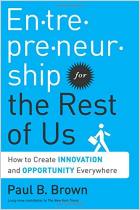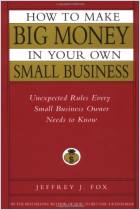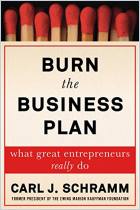At some point in their careers, many people consider chucking the routine and going out on their own. More people than ever are turning those thoughts into action. Jonathan Moules, who covers small business for the Financial Times of London, draws on the wins and losses of dozens of entrepreneurs to summarize their collective wisdom through illustrative cases from the past decade or so. He explains why failure can be a meaningful step on the road to success. Unless you’re a beginner to business trends, you won’t learn much that’s new – despite the book’s title and subtitle. This thoughtful, succinct and practical presentation is nonetheless quite valuable. getAbstract suggests it especially to budding entrepreneurs.
The Idea
The millions of small businesses in the US represent about 90% of the firms in the country and account for almost 40% of its economic activity. Yet few of those companies ever grow beyond single-person operations; about 80% fail outright within their first five years. Often, the dreamers’ or wannabes’ first mistake is thinking they have to invent something new or come up with the next great breakthrough idea. Nights and weekends, months and even years slip by, but the perfect idea never seems to arrive. Many business hopefuls fail to realize that most successful new companies are derived from existing ideas and built on established, successful models.
Even the most innovative start-ups – like Twitter – owe their existence to failed models and a process of trial and error. Yet the public assumes that new billion-dollar companies hit the jackpot overnight, soon after some pals dream them up in their spare time.
Entrepreneurs should build on their experience and knowledge. There is no shame in imitation. Leave the employer who won’t try the new, more efficient changes you’ve proposed and start your own similar business. Or lead a start-up in one country...


















Comment on this summary or Démarrer une discussion